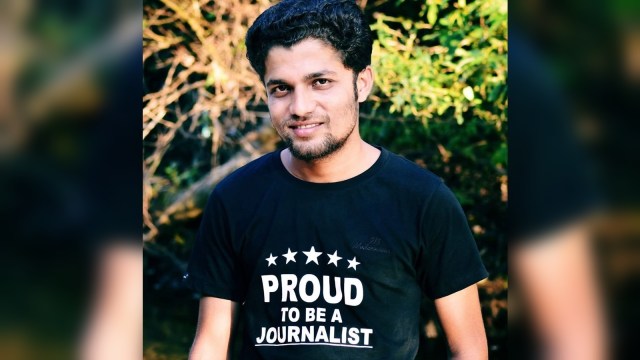
In November 2000, a part of Madhya Pradesh was carved out to create the mineral-rich state of Chhattisgarh. Back then, it had the air of a dusty province, almost cut off from the rest of the country, despite its phenomenal wealth of forests and minerals. The Chhattisgarh Road Development Corporation was set up in 2014. Work on the National Highway development was fast-tracked, for which a total amount of Rs 9,070.02 crore was awarded. In 2024, the Centre approved a further Rs 11,000 crore for strengthening road networks.
When big money brings progress to a neglected, backward region, corruption too sneaks in. Rumours of corrupt practices in construction activities in the state followed on the heels of the development work. The recent suspicious death of Mukesh Chandrakar, a young freelance journalist, is a grim reminder of the vulnerability of reporters in small towns and rural areas. Chandrakar was a known name among journalists in the region, and had, in the past, contributed investigative reports to major TV channels. More recently, he ran a YouTube channel called Bastar Junction, with 1.59 lakh subscribers. He had done several reports alleging major scams in road construction which probably drew the ire of those involved. This is a familiar pattern.
A young and enthusiastic journalist reports on corrupt practices in a small town or village, and soon it transpires that he/she has been attacked or slapped with a legal notice. These are freelancers with little to no financial support from the papers or channels they contribute to. They make easy victims for corrupt contractors, babus and crooked policemen. One Rupesh Kumar Jha, a Hindi journalist in Jharkhand, who had been reporting on increased industrial pollution in the region, had charges slapped against him, including under the dreaded UAPA, in 2022.
The digital news sector is worse off, making it quite impossible for Davids to take on corporate Goliaths. The result has been abrupt closure of small blogs and podcasts that try to challenge power lobbies. The Editors’ Guild of India and the National Union of Journalists, in their press statements, record their anxiety over the lack of safety of journalists in India, especially freelancers in vernacular media in rural areas. It is no surprise that India’s rank in the press freedom index is rapidly falling.
Most journalists subjected to violence are writing or reporting for dailies and channels in Indian languages. A vehicle belonging to Nikhil Wagle, a senior Marathi journalist, was damaged by right-wing goons protesting against his presence at a public meeting in February 2024. Two FIRs were later filed against him, one of them by the police, alleging that he had disobeyed a legal notice denying permission for the event. In the same month, Odia journalist Jyoti Ranjan Mohapatra, reporting for the channel Bada Khabar TV, was beaten mercilessly by four unidentified men. The body of Buddhinath Jha, a young reporter and RTI activist from Bihar, who had been investigating illegal clinics, was found half burnt by the roadside in November 2024.
Sometime in the early 1980s, a young Hindi journalist Umesh Dobhal who had been exposing the local liquor mafia, went missing in the hills of what is now called Uttarakhand. I, along with two other journalists, Sunderlal Bahuguna and S P Singh, filed a PIL seeking a CBI probe. The CBI enquiry confirmed the role of the liquor mafia. The skeletal remains of Dobhal were later found in a small water body; the accused was sent to Kerala in custody, so he couldn’t turn witnesses. From there to 2024, we seem to have regressed, when the accusers are now taken into custody while the accused roam free, threatening witnesses.
A journalist working in remote regions has the advantage of being physically present where the so-called “development work” is actually taking place. Journalists working for major channels or legacy media may hire cars or choppers but vernacular freelancers cannot. However, they alone know the people in affected areas and speak their dialects, and they often use social media to be heard.
One mourns the death of Mukesh not merely because he was young. Stories of corruption and irregularities in the system too die each time a Mukesh Chandrakar or Buddhinath Jha dies.
The writer is former chairperson, Prasar Bharati